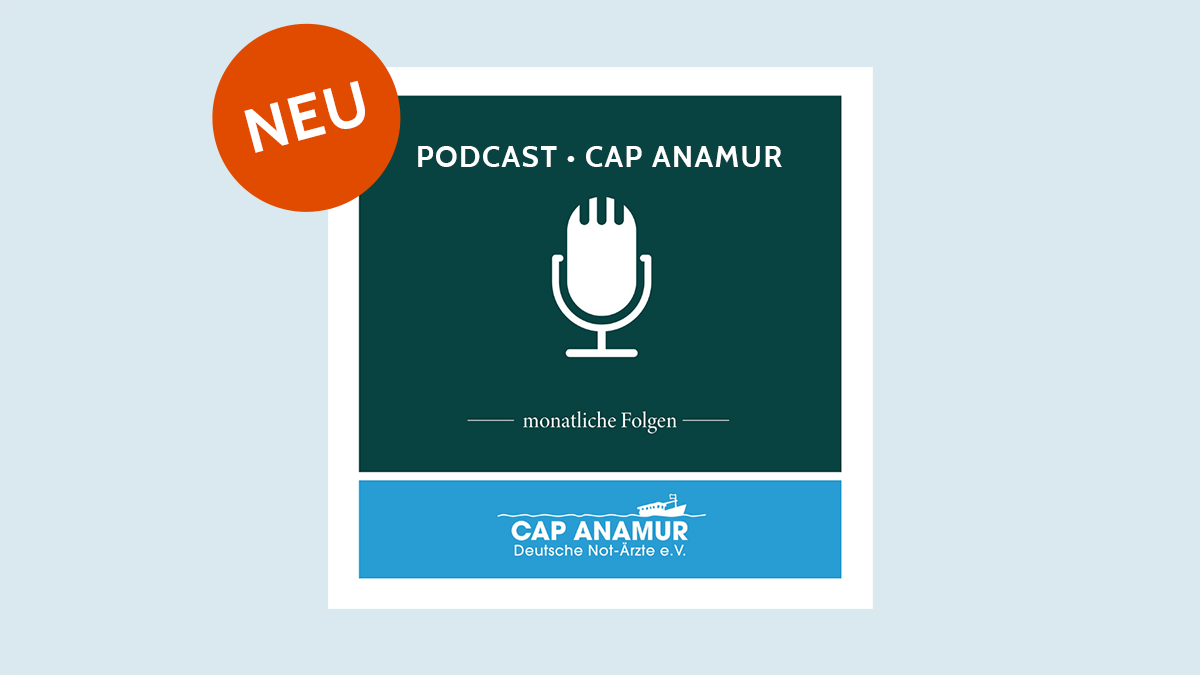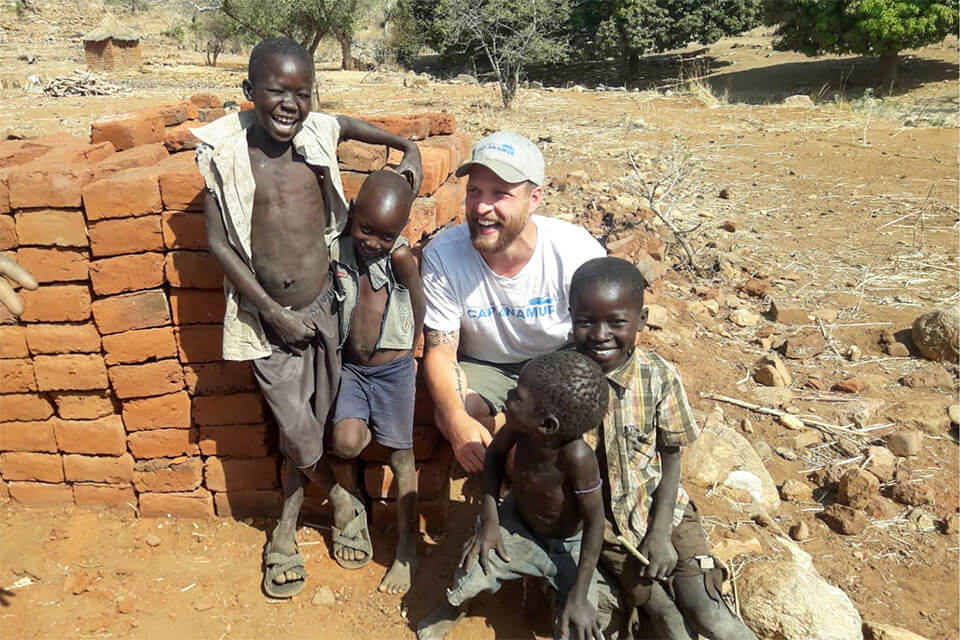How to Keep a Hospital Running in the Remote Nuba Mountains
Our project staff member Andreas Wienhold describes his work as a craftsman at Cap Anamur Hospital in the Nuba Mountains.
No official corridor for humanitarian relief goods, no resident industry and infrastructure
The active war in Sudan is over, the hoped-for peace talks are stalling – and there is still no official corridor for humanitarian aid. In mid-October, Andreas Wienhold returns to Sudan after a home leave to resume his work there for another few months.

Twice a year, we fill up our warehouses with building materials, medicine and food
Two commercial containers fully loaded with essential contents for construction and maintenance work, medical equipment, hospital equipment and food start from Nairobi via Uganda through the whole of South Sudan, where the official transport route ends at the Yida refugee camp. Unloading, sorting and reloading onto local trucks that take the arduous journey to Lwere in Sudan. In some cases, important medicines and supplies even have to be flown in temporarily to maintain the supply, which pushes the budget to the breaking point financially.

To our disadvantage, the rainy season sets in more and more and the road conditions get worse by the day, which not only puts extreme strain on the vehicles and the one or other repair on the road, but also demands the energy and commitment of the entire crew. The vehicles plow in convoy through mud, slush and rivers with constantly rising water levels. It takes almost three weeks to travel back and forth between Yida and Lwere until the most important relief supplies are stowed in the camp. Everyone pitches in, knowing that there are no other supplies available to sustain the hospital for the next six months.

The planning, organization and implementation of this mammoth task, which must be carried out every six months to bring urgently needed relief supplies to the remote mountain region, is one of the main financial factors and is essential for the survival of the project.
Life in the Nuba Mountains
The flip side of this coin is that you realize how merciless life is in the middle of the outback. Many people walk hundreds of meters to the next water hole several times a day with a 20 liter jerry can on their head just to supply their family with water. Staple foods are homegrown and every day the fields are tended, nurtured and protected from the goats, who of course like the little that is grown better than the dry blade of grass.
In a medical emergency, it takes hours, even days, to reach a health outpost or even the hospital, which means that even the smallest infectious disease can lead to serious consequences, or even death in the middle of the road. It is not uncommon for people to pick up the sick, the injured, or even women about to give birth, sitting on a donkey, and immediately take them to the hospital.

Due to the hospitality, joie de vivre and unconditional helpfulness of the people, I find it difficult to accept and understand the sad, sometimes even violent and brutal fates, situations.
It is therefore all the more important to have a strong team that is there for each other and supports each other. Situations and experiences are discussed and debated, tasks are shared and taken over to provide relief. Because a nurse is suddenly needed to support the emergency generators or as a craftsman you end up in a medical procedure. Some days it is possible for us to enjoy the peace and the sunset on our so-called “house mountain” for almost two hours after work.
Life here is decelerated, focused on the essentials of life. No water from the faucet, the power capacity is severely limited and a supermarket with filled shelves is not even thinkable. No radio, no cable television that tries to tell you how the world should be. No traffic noise, no light pollution… I have probably never seen a clearer starry sky.

You have to take the necessary time out to leave this region of the world just about every six months – even if it is hard to leave your areas of responsibility behind for a short time. But before you can enjoy this time out back home, the departure date and the rainy season had coordinated perfectly and the return trip turned into a two-day mud fight until we arrive dirt-smeared at the refugee camp. We have one day left to get the clothes and ourselves looking a little more civilized before we take the plane back home in stages.”

"From Trisching to hospital expansion in Sudan: Andreas Wienhold helps".
You can also read a detailed article about Andreas’ commitment to Cap Anamur here.


